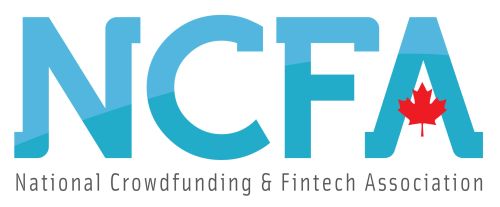2022’s Best Fundraising Advice
Sifted | Miriam Partington | Dec 26, 2023

Image: Helery Pops, Honey Badger Capital
Amid a downturn in public stock prices and a rise in interest rates, VCs are more cautious about investing. Founders have had to adapt — with some choosing to abandon raising altogether until a more favourable economic climate returns.
- When investors say 'raise less', don't listen: More often that not, investors put pressure on founders to raise less cash because their fund size doesn’t allow them to lead the round, or because they can’t get the chunk of ownership they want, among other things — which is why Vila advocates for sticking to your guns and doing what’s right for your company.
- “We understand our business, we know what we want to build and we have a strategy to do it,” she says. “If you are certain of what you need, keep looking for the right investor.”
See: OSC Pilot: New Self-Certified Investor Prospectus Exemption
- Do investor DD: Helery Pops, cofounder of Estonian VC firm Honey Badger Capital, says that founders should think about fundraising as building a long-term relationship with an investor — one who will help you with all aspects of running a business, and will be supportive when the going gets tough.
- “Everyone can talk and say they are super helpful. But at the end of the day if the investor just gives you money and disappears, that is not what you want.”
- Be weary of predatory terms: Things have changed pretty drastically in the last six months, with term sheets becoming decidedly more “predatory,” said Mike Labriola, a partner at law firm Wilson Sonsini. In other words, investors are looking for more protection from a downside scenario. And that means negotiating for deals that give founders less control and put more guardrails in place.
- Michiel Kotting, partner at Northzone, advises founders to talk to people they trust to get a second opinion on a deal. He also says that a downround — or raising a round at a lower valuation than a previous round — is often the better option than another solution that involves keeping the valuation but handing a big chunk of control to a new investor.
See: Corporate Venture Capital and How It May Impact Your Startup
- Budget for your fundraise: June Angelides, investor at Samos Investors, says startups should be smart about setting money aside for fundraising fees — and definitiely not spend money on some things. “Check when negotiating deal terms with investors whether you are required to pay for the cost of their legal fees (as well as your own!),” she says. And ask the following questions before fundraising:
- Who pays the investors’ legal fees?
- When do fees have to be paid? Before or after the round is completed?
- What is the maximum this could cost?
- Do I need a law firm or can I use a legaltech platform
Another perspective
Here are a few pieces of advice for startups seeking venture capital in difficult bear markets:
- Focus on your value proposition: In a bear market, investors are going to be more risk-averse, so it's important to clearly articulate the value that your company brings to the table. This includes the problem you are solving, your unique solution, and your target market.
- Have a solid financial plan: Investors will want to see that you have a solid plan for how you will use their capital to grow the business. This should include detailed financial projections, a clear understanding of your burn rate, and a plan for profitability.
See: McKinsey Magazine: Investor Allocations are Shifting
- Be realistic about your valuation: It's important to have a realistic valuation for your company in a bear market. Overvaluing your company could scare off potential investors, while undervaluing it could leave money on the table.
- Look for alternative sources of funding: In a bear market, venture capital may be harder to come by. Consider looking for alternative sources of funding, such as angel investors, crowdfunding, or government grants.
- Network and get introductions: In a challenging market, it's more important than ever to have a strong network. Try to get introductions to potential investors through mutual connections or industry events.
Continue to the full article --> here
 The National Crowdfunding & Fintech Association (NCFA Canada) is a financial innovation ecosystem that provides education, market intelligence, industry stewardship, networking and funding opportunities and services to thousands of community members and works closely with industry, government, partners and affiliates to create a vibrant and innovative fintech and funding industry in Canada. Decentralized and distributed, NCFA is engaged with global stakeholders and helps incubate projects and investment in fintech, alternative finance, crowdfunding, peer-to-peer finance, payments, digital assets and tokens, blockchain, cryptocurrency, regtech, and insurtech sectors. Join Canada's Fintech & Funding Community today FREE! Or become a contributing member and get perks. For more information, please visit: www.ncfacanada.org
The National Crowdfunding & Fintech Association (NCFA Canada) is a financial innovation ecosystem that provides education, market intelligence, industry stewardship, networking and funding opportunities and services to thousands of community members and works closely with industry, government, partners and affiliates to create a vibrant and innovative fintech and funding industry in Canada. Decentralized and distributed, NCFA is engaged with global stakeholders and helps incubate projects and investment in fintech, alternative finance, crowdfunding, peer-to-peer finance, payments, digital assets and tokens, blockchain, cryptocurrency, regtech, and insurtech sectors. Join Canada's Fintech & Funding Community today FREE! Or become a contributing member and get perks. For more information, please visit: www.ncfacanada.org
Related Posts
- SEO Powered Content & PR Distribution. Get Amplified Today.
- Platoblockchain. Web3 Metaverse Intelligence. Knowledge Amplified. Access Here.
- Source: https://ncfacanada.org/2022s-best-fundraising-advice/
- 1
- 2018
- 2022
- 9
- a
- About
- adapt
- advice
- advocates
- affiliates
- After
- All
- allocations
- alternative
- among
- and
- Angel
- angel investors
- Another
- article
- aspects
- Assets
- Badger
- Bear
- Bear Market
- bear markets
- because
- become
- becoming
- before
- BEST
- Better
- Big
- blockchain
- Brings
- build
- Building
- burn
- business
- cache
- Canada
- capital
- Cash
- Category
- cautious
- certain
- challenging
- choosing
- clear
- clearly
- Climate
- closely
- cofounder
- come
- community
- company
- Completed
- Connections
- Consider
- control
- Corporate
- corporate venture capital
- Cost
- could
- create
- Crowdfunding
- cryptocurrency
- Dark
- day
- deal
- Deals
- decentralized
- detailed
- difficult
- digital
- Digital Assets
- distributed
- Doesn’t
- doing
- downside
- DOWNTURN
- drastically
- Economic
- ecosystem
- Education
- engaged
- entry
- Ether (ETH)
- events
- EVER
- Fees
- few
- finance
- financial
- fintech
- Firm
- following
- For Startups
- founders
- from
- full
- fund
- funding
- Fundraise
- Fundraising
- get
- Give
- gives
- Global
- going
- Government
- grants
- Grow
- GUNS
- help
- helpful
- helps
- Honey
- How
- HTTPS
- Impact
- important
- in
- In other
- include
- includes
- industry
- Industry Events
- information
- Innovation
- innovative
- Insurtech
- Intelligence
- interest
- Interest Rates
- introductions
- investing
- investment
- investor
- Investors
- IT
- Jan
- Keep
- keeping
- Know
- Last
- Law
- law firm
- lead
- Leave
- Legal
- light
- long-term
- looking
- magazine
- Market
- Markets
- max-width
- maximum
- McKinsey
- means
- member
- Members
- money
- months
- more
- mutual
- Need
- network
- networking
- New
- ONE
- Opinion
- opportunities
- Option
- osc
- Other
- ownership
- paid
- partner
- partners
- Pay
- payments
- pays
- peer to peer
- People
- perks
- pieces
- pilot
- Place
- plan
- plato
- Plato Data Intelligence
- PlatoData
- please
- Pops
- potential
- pressure
- pretty
- previous
- Prices
- Problem
- profitability
- projections
- projects
- proposition
- protection
- provides
- public
- put
- Questions
- raise
- raising
- Rate
- Rates
- realistic
- Regtech
- relationship
- required
- returns
- Rise
- round
- running
- Said
- Second
- Sectors
- seeking
- Services
- setting
- SHIFTING
- should
- SIX
- Six months
- Size
- small
- smart
- So
- solid
- solution
- Solving
- some
- Sonsini
- Sources
- spend
- stakeholders
- start-ups
- startup
- Startups
- Stewardship
- sticking
- stock
- Strategy
- strong
- such
- Super
- supportive
- table
- TAG
- Talk
- Target
- term sheets
- terms
- The
- their
- things
- thousands
- Through
- Title
- to
- today
- Tokens
- Trust
- understand
- understanding
- unique
- use
- Valuation
- value
- VC
- VCs
- venture
- venture capital
- vibrant
- What
- whether
- which
- while
- WHO
- will
- Wilson
- words
- works
- Your
- zephyrnet












